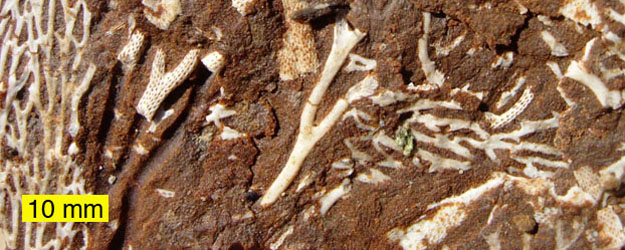
View of Hamburg, Germany, where my meeting began with a one-day walking tour. This is a view from the very, very high steeple of the St. Michaelis Church. It is reached by climbing, many, many steps -- the open kind where you can see the yawning chasm below you as giant bells rattle the rivets.
KIEL, GERMANY–One of the many joys of being a geologist is attending international scientific meetings. They are always in some location that is convenient for travel and has local field areas the participants want to visit. I am here in northwestern Germany attending a meeting of the International Bryozoological Association. This is an organization that studies, naturally enough, the Phylum Bryozoa, and it includes biologists and paleontologists. Our meetings are remarkably seamless sessions that switch between living and fossil organisms. While I’m certainly not a hardcore bryozoologist, I work with the critters often and very much enjoy learning more about their evolution and ecology.
For this meeting the field areas are diverse and spectacular. For the biologists there are extensive tidal flats and shallow marine shelf areas on the Baltic coast, and for the paleontologists there are numerous quarries into very fossiliferous Cretaceous chalks. After the meeting I am going on a week-long field trip through western Germany where we will see rocks and fossils from the Devonian through the Miocene. Bryozoans will be a theme, of course, but we will see additional fossil groups, sedimentary structures, folds, faults, dikes and many other things that make the hearts of geologists beat faster. You can count on seeing many images and stories posted here when possible!



